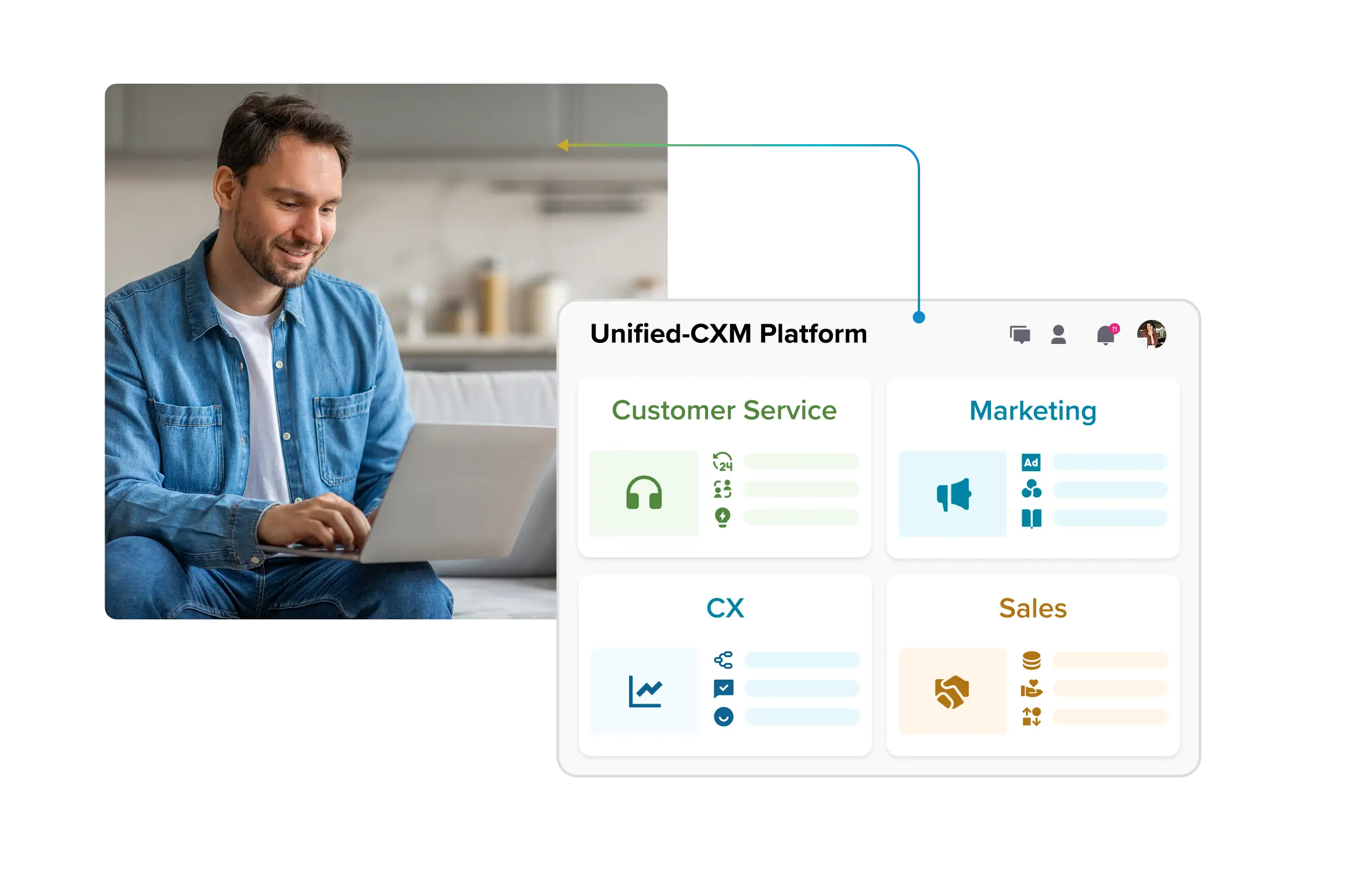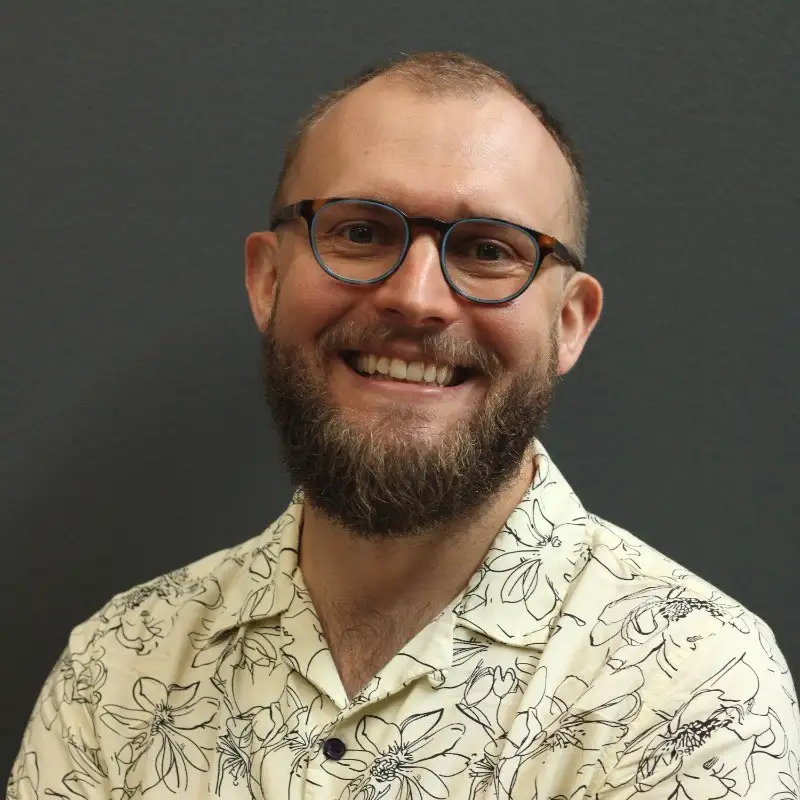The strategic AI-native platform for customer experience management
The strategic AI-native platform for customer experience management Unify your customer-facing functions — from marketing and sales to customer experience and service — on a customizable, scalable, and fully extensible AI-native platform.

What I Learned About Work from Eating Pizza Wrong
My perspective on how variety, diversity of experiences, and saying yes can lead to meaningful career growth
What’s kept me fulfilled in my career hasn’t been titles or promotions - it’s been variety: the projects that challenge me, the teams that stretch my thinking, and the people and cultures that shift my perspective. I love working on multiple initiatives at the same time as I’m most energized when I have a few things my brain can jump between. Variety keeps my ideas fresh and allows my brain to draw connections showing me how everything is linked, and how to get things done much more effectively.
Over my past decade in HR, my favorite projects are the large, multi-functional, and often multi-country ones. I’ve worked across tech, biotech, and medical device companies, from 300 to 6,000 employees in size, from US only to truly global. In this article I’ll share how embracing variety, working across functions and cultures, and saying yes to new opportunities can accelerate growth – for you and those around you.
What I’ve Learned from Working Across Teams, Regions, and Cultures
A key learning in my career has been how much perspective you gain from working across different functions, regions, teams, and cultures. Especially when you are in a support function like HR, you can learn so much about the priorities, challenges, and nuances other teams face. Having that insight can make your own work more effective.
Something that seems simple, such as an employee survey or compliance training, can be delivered much more effectively when you look across teams. We’ve tweaked launch dates to avoid clashing with the sales team trying to close big deals at the close of the quarter or the product team racing to meet a release date. We’ve seen how our regional partners got creative to help manufacturing employees complete a survey without regular computer access. Cross-functional experiences develop muscle memory that teaches you to look for this nuance. You start thinking about when you launch something, how you communicate it, and even the language you use to better meet your audience. It makes you better at aligning with your colleagues, not just pushing things through.
It also builds empathy and cultural understanding. You learn that some cultures are more direct in how they ask for what they need, while others prefer a more subtle approach. You may ask a room full of people for feedback and get silence, only to receive incredibly detailed and specific ideas in a post event survey. This kind of awareness makes you a better partner - and for me, it’s one of the most engaging parts of the job.
Finding Connections Across Projects
I’ve found that curiosity and openness to new projects has led to some of my most meaningful skill building. While working on our onboarding process, I noticed someone had built a Google Apps Script to pull survey results from our new hires and generate formatted emails to the company with the push of a button. It saved so much time and cut out a bunch of manual steps. Later that same day, I was in a design session for our leadership training program, and I realized we could use the same automation here to streamline our own manual coordinator emails. While I had no idea how to use the technology, I could tell it was worth learning. That’s the power of exposure. When you’re involved in a range of initiatives, you learn new ways of working.
Beyond just learning new tools or processes, variety shows you how everything connects. Just like with the employee survey, what might seem like a simple scheduling decision requires understanding of the bigger picture across teams and regions. With more exposure, you learn to ask more questions and anticipate challenges. With this kind of company-wide lens, you start drawing connections between everything you see and hear.
When What You ‘Know’ Isn’t Quite Right
One of the surprising things about working across functions, regions, and cultures is how much it challenges what you think you know. You start to realize that some assumptions you had - about how things should work, or what’s most efficient - don’t always hold up in different contexts. To get there, you need to be willing to let go of some common misconceptions.
When I was 17, I spent a year studying abroad in Finland. I’d done what research I could beforehand, reading up on cultural differences, forcing myself to eat fish, and preparing myself for a dark winter. One tip I read, from a respected cultural source, really stuck with me: Finns eat pizza with a fork and knife.
When I arrived in Helsinki and my host siblings picked me up for lunch, we of course went straight for pizza. I was jet-lagged and disoriented but determined to fit in and excited to prove my cultural awareness. Our pizzas arrived, and I began to carve away at my slice with a dull butter knife, trying to make polite little fork-sized bites while pretending everything was completely normal. After a solid two to three minutes of struggle and tiny bites of pizza, I looked up to see how my host siblings could possibly be doing this. That’s when I realized they were both just holding their slices. No utensils in sight. Years later, I read it IS common to use a fork and knife, but only in highly formal settings.
The point is: it’s easy to do a bit of research and think that’s the universal truth. But one article, guide, or experience doesn’t represent the full truth of a culture, a team, or a function. Nor does it capture the nuance of different contexts and settings. You’re seeing a slice of it - pun intended. Just like within a region, department, or even a meeting room, there are multiple perspectives, norms, and working styles. Exposure helps. And the more of it you get, the better you become at knowing when something is more broadly applicable versus unique to a small group.
Earlier in my career, I was also guilty of assuming my way was the best way. I’d just graduated college and was asked to write an email encouraging people to complete open enrollment. I approached it the same way I wrote emails in school - full of sarcastic jokes, an overly casual tone, and a truly cringe-inducing hypothetical on how failing to update your benefits could result in your ex-spouse receiving your life insurance. At the time, I thought it was a hit. Looking back? Not exactly the tone you'd want in a benefits communication. But that’s how we learn.
Misconceptions come from limited perspectives. You overcome them by staying curious, listening deeply, and being open to the idea that what works for you might not work for everyone else.
Growth Comes from Saying Yes and Following Through
I've come to realize that saying yes - to new projects, new teams, or unfamiliar territory - can completely shift the trajectory of your career. The most fulfilling growth often comes from variety, curiosity, and being open to the unknown. Whether you're exploring work across different functions or cultures or simply taking on something new and a little outside your comfort zone, there’s immense value in showing up, listening, and owning what you commit to.
The ownership piece matters. A core value of a previous employer of mine was, “Do what you say.” This has stuck with me throughout my career. In any collaborative environment, following through on your commitments builds trust and strengthens your working relationships. It’s a simple thing, but it goes a long way. When people know they can count on you, it opens doors, builds your reputation, and makes every project run more smoothly.
So, if you’re wondering where to take your own development, maybe it starts with asking yourself: What could I say yes to next?
If you’re hesitant about jumping into something unfamiliar, my advice is simple: just go for it. As cliché as it is, everyone has to start somewhere, and there’s no better way to build experience than by actually doing the work. Keep an open mind, ask questions, and really listen. Approach every new challenge with a learner’s mindset. Don’t assume it’ll go poorly (or perfectly), and take the time to do your research, especially when working across cultures. Even small things, like gestures or phrases, can have different meanings. Staying curious and respectful goes a long way - and it’s how real growth happens.






